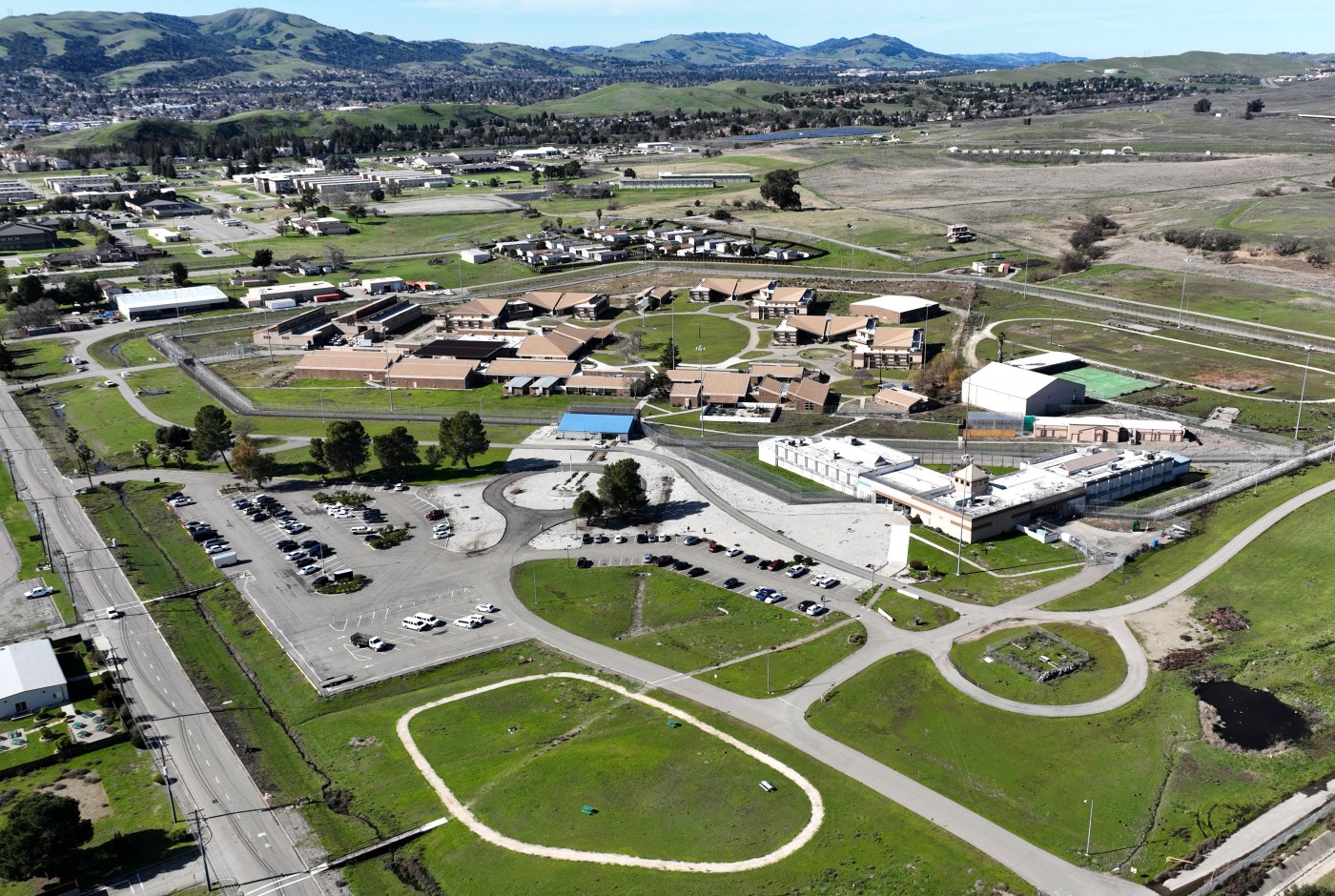DUBLIN — Signs mounted this week that President Donald Trump’s national immigration crackdown could include a migrant detention center at the defunct FCI Dublin women’s prison, where a reputed “rape club” terrorized inmates for years.
U.S. Immigration and Customs Enforcement agents were spotted conducting an assessment at the shuttered facility both Thursday and Friday, according to John Kostelnik, a federal prison union leader, who earlier this week sought information about the facility’s future in a letter to prison officials. A “structural assessment” of the prison was conducted over the summer and later turned over to ICE, he said.
The activity comes just two months after the Federal Bureau of Prisons announced plans to permanently close the scandal-ridden compound, where years of sexual abuse, retaliation and poor physical and mental care led to scores of lawsuits and the appointment of an unprecedented independent monitor. At the time of the building’s closure, the prison system’s leaders justified the move as necessary, given low staffing levels and the “considerable repairs” needed to reopen it.
The prisons union and migrant advocates blasted the idea of turning FCI Dublin into such a detention center as “disheartening” and “horrifying.”
“The idea that ICE would house people in a facility that another branch of government has acknowledged is not safe is absurd,” said Susan Beaty, an attorney with the California Collaborative for Immigrant Justice. “We have every reason to believe that the sort of deeply entrenched problems of Dublin — abuse, retaliation, neglect — would only continue if ICE took over the facility.”
Beaty cited court testimony in her organization’s lawsuit against the Bureau of Prisons over abuses at FCI Dublin, where prison leaders estimated “tens of millions of dollars” worth of improvements needed at the facility to make it safe.
“Reopening the prison – where black mold and asbestos were quite literally making people sick – and locking up non-citizens there would be deeply cruel and reveal the failure of the federal government to enact true structural change,” added Kendra Drysdale, a former FCI Dublin inmate and an advocate with the California Coalition for Women Prisoners. “ICE detention centers are notorious for the very same forms of abuse.”
Over the past month, sightings of ICE agents in communities across the Bay Area — from San Jose to Concord — have heightened fears, while spurring protests and pledges by some elected officials to help immigrants in their communities. After one such ICE operation in January, San Jose Mayor Matt Mahan expressed hope that federal immigration agents were targeting “violent and serious criminals” instead of “neighbors who are contributing and law-abiding members of our community.”
In a statement on Friday, ICE’s communications team said “we can confirm that ICE is exploring all options to meet its current and future detention requirements” amid a “significant number of criminal arrests.” To help with that demand for space, the Federal Bureau of Prisons said it is “assisting” ICE agents “by housing detainees and will continue to support our law enforcement partners to fulfill the administration’s policy objectives.”
Neither agency would confirm Friday whether FCI Dublin would be among the locations to house migrants. The Bureau of Prisons referred that question to ICE, which said it “cannot confirm individual pre-decisional conversations.”
While campaigning for office last year, Trump vowed to “carry out the largest domestic deportation operation in American history” by expelling up to 11 million people from the country. So far, he has signed numerous executive orders meant to embolden federal immigration agents while sending military troops to the southern U.S. border and forcing migrants to wait outside the country while seeking asylum.
Already, several federal prisons across the nation — including in Georgia, Pennsylvania, Florida, New Hampshire and Kansas — have been tapped to house migrants since Trump took office last month, said Kostelnik, the western regional vice president of the American Federation of Government Employees Council of Prison Locals No. 33. At least two of those prisons are expected to receive up to 500 migrants each, he said.
When federal prison leaders first moved to close the facility in April, the Dublin compound had 501 inmates at the main FCI Dublin prison and 104 inmates in a minimum security camp on the property.
On Friday, Kostelnik denounced the notion of FCI Dublin opening as a detention center for migrants, calling it “demoralizing.”
“They haven’t fixed anything,” Kostelnik said. “They did assessments to see how much (improvements would cost), and that was the extent of what they’ve done. They have not improved anything to the facility.”
He said a similar decision to house migrants at federal prisons during Trump’s first term was “one of the worst things I’ve ever dealt with in my career.” While a union president at Federal Correctional Complex Victorville in 2018, he recalled watching 1,000 migrants being housed at the facility, where he said guards were wholly unprepared for the cultural and medical needs of migrants being housed there.
“We’re not Homeland Security — we’re the branch of the Department of Justice,” Kostelnik said. “The communities need to know that is a huge difference, and it requires different resources, different procedures and policies. And when you intertwine those, it really, truly creates chaos.”
Dublin Mayor Sherry Hu. On Friday morning, Dublin Mayor Sherry Hu said she had only learned of ICE’s activities at FCI Dublin hours earlier, but would be seeking answers from the agency about its plans for the facility. She said her opinion on ICE’s presence there would be predicated, at least in part, on whether the federal agency could avoid the “harassment’ and “violence” that had previously become endemic at the compound.
Hu stressed, given the facility is federally-owned, that “our city has a very limited role about what we can do here.” She also said wanted to learn from ICE about “what we can do as city to help out, to make this transition better, how to make this process smoother.”
Jakob Rodgers is a senior breaking news reporter. Call, text or send him an encrypted message via Signal at 510-390-2351, or email him at jrodgers@bayareanewsgroup.com.












